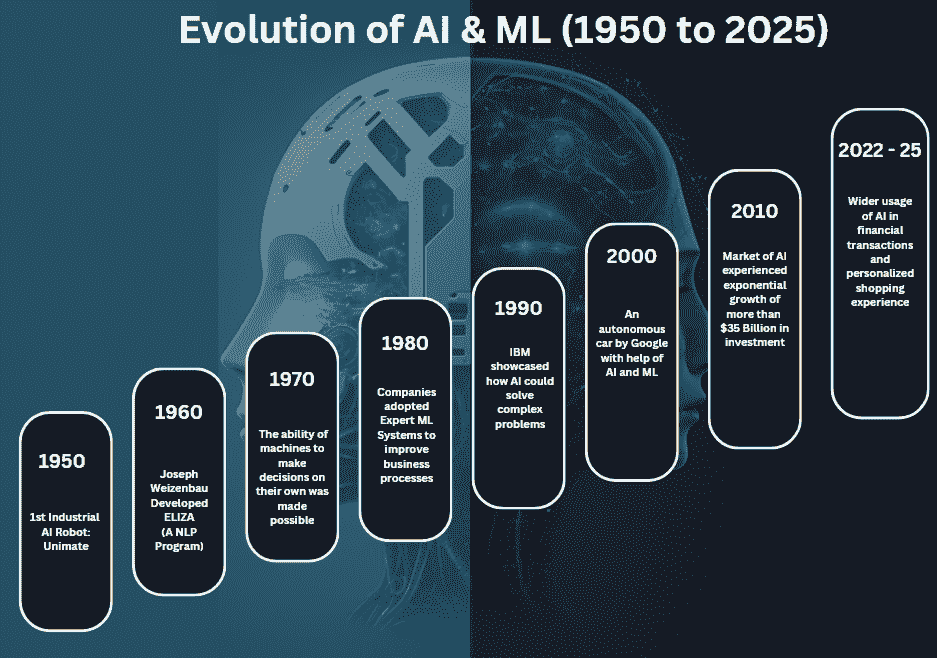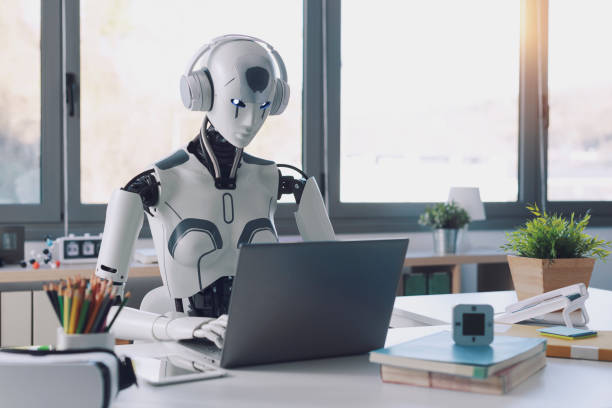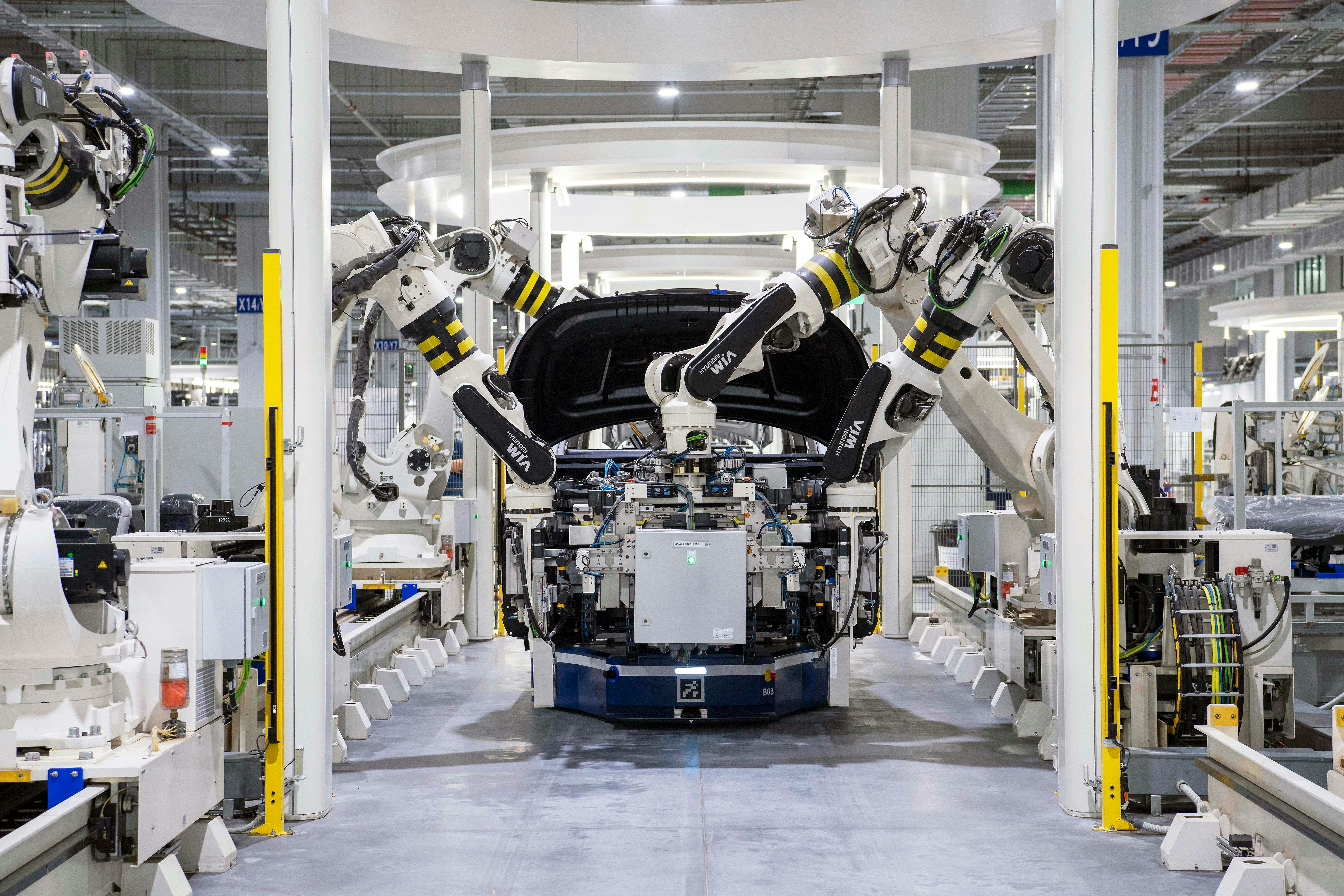
The Evolution of AI: What's Next and How We'll Get There
Artificial Intelligence (AI) has evolved from a mere concept in science fiction to a transformative force reshaping industries, societies, and our daily lives. As we stand on the precipice of the next AI revolution, it's essential to understand where we've been, where we're headed, and what it will take to get there.
From Turing to Today: A Brief History
The journey of AI began in the mid-20th century with pioneers like Alan Turing, who proposed the idea of machines that could simulate human intelligence. The Dartmouth Conference in 1956 marked the birth of AI as a field of study, bringing together luminaries like John McCarthy and Marvin Minsky.
Fast forward to the 21st century, and AI has made significant strides. Machine learning algorithms now power everything from recommendation systems to autonomous vehicles. However, despite these advancements, we have yet to achieve Artificial General Intelligence (AGI)—a machine that can understand, learn, and apply knowledge across a wide range of tasks as well as a human can.
The Current State of AI
As of 2025, AI is deeply integrated into various sectors:
-
Healthcare: AI assists in diagnosing diseases, personalizing treatment plans, and managing patient data.
-
Finance: Algorithms detect fraudulent activities, optimize trading strategies, and manage risks.
-
Transportation: Self-driving cars and drones are becoming more prevalent, promising safer and more efficient travel.
-
Customer Service: Chatbots and virtual assistants handle customer inquiries, improving response times and satisfaction.
Despite these advancements, challenges remain, particularly in achieving AGI and ensuring ethical AI development.
Philosophical Perspectives on AI
Philosophers have long debated the implications of AI. Joscha Bach, a cognitive scientist, suggests that while machines might achieve some level of subjective awareness, true consciousness in AI might only emerge when these systems can integrate their own experiences into a continuous narrative, much like humans do. He emphasizes that current AI lacks understanding or any true conception of the world around it.
Vincent C. Müller, a philosopher specializing in AI ethics, warns that without careful consideration, AI could exacerbate societal inequalities. He advocates for interdisciplinary approaches to AI development, integrating insights from philosophy, ethics, and social sciences.
The Road to AGI: What Will It Take?
Achieving AGI is a monumental task that requires advancements in several areas:
-
Hardware: Innovations like Microsoft's analog optical computer, which uses light instead of digital electronics to perform calculations, could revolutionize AI efficiency and scalability. Live Science
-
Algorithms: Developing more sophisticated learning algorithms that can generalize knowledge across different domains.
-
Ethics and Governance: Establishing global frameworks to ensure AI is developed and used responsibly, preventing misuse and ensuring benefits are equitably distributed.
The Role of ContentHub.Guru in AI's Future
Platforms like ContentHub.Guru play a crucial role in shaping the discourse around AI. By providing a space for thought leaders, technologists, and philosophers to share insights, ContentHub.Guru fosters informed discussions on AI's evolution and its societal impacts.
FAQ
Q1: What is Artificial General Intelligence (AGI)?
A: AGI refers to a machine's ability to understand, learn, and apply knowledge across a wide range of tasks, matching or exceeding human capabilities.
Q2: How is AI currently being used?
A: AI is utilized in various sectors, including healthcare for diagnostics, finance for A: AI is utilized in various sectors, including healthcare for diagnostics, finance for fraud detection, transportation for autonomous vehicles, and customer service through chatbots.
Q3: What are the ethical concerns surrounding AI?
A: Ethical concerns include potential job displacement, privacy issues, and the risk of AI being used for malicious purposes.
Q4: How can we ensure AI is developed responsibly?
A: Establishing global ethical guidelines, promoting transparency in AI development, and encouraging interdisciplinary collaboration are essential steps.
Q5: What is the Q5: What is the future of AI?
A: The A: The future of AI includes advancements towards AGI, increased integration into daily life, and the need for robust ethical frameworks to guide its development.
How to Stay Informed About AI's Evolution
-
Engage with Thought Leaders: Follow philosophers and technologists who specialize in AI to gain diverse perspectives.
-
Participate in Discussions: Join platforms like ContentHub.Guru to engage in meaningful conversations about AI's future.
-
Stay Updated: Regularly read reputable sources to keep abreast of the latest developments in AI research and applications.
As we look towards the future, the evolution of AI presents both opportunities and challenges. By fostering informed discussions and responsible development, we can navigate this transformative era and harness AI's potential for the betterment of society.
Suggested for You

The Evolution of AI: What's Next in 2025 and Beyond
Reading Time: 4 min
Explore the latest developments in AI, philosophical perspectives, and what the future holds for art...
Read More →
The Next Life: Machines Building Machines and the Dawn of a Post-Human Era
Reading Time: 4 min
Explore the evolution of a world where machines build machines. From AI pioneers to cultural shifts,...
Read More →
The Next Frontier: Navigating the Evolution of the Internet
Reading Time: 4 min
Explore the future of the internet, from AI advancements to digital transformation, and how it's res...
Read More →.jpg?alt=media&token=eee8c90a-78da-4e81-9501-45f53adb6eb3)
Meta’s New Smart Glasses: Ray-Ban Display, Oakley Vanguard & the Birth of “Personal Superintelligence”
Reading Time: 4 min
Meta launches its first smart glasses with built-in display and neural wristband. Celebrating design...
Read More →
Comments